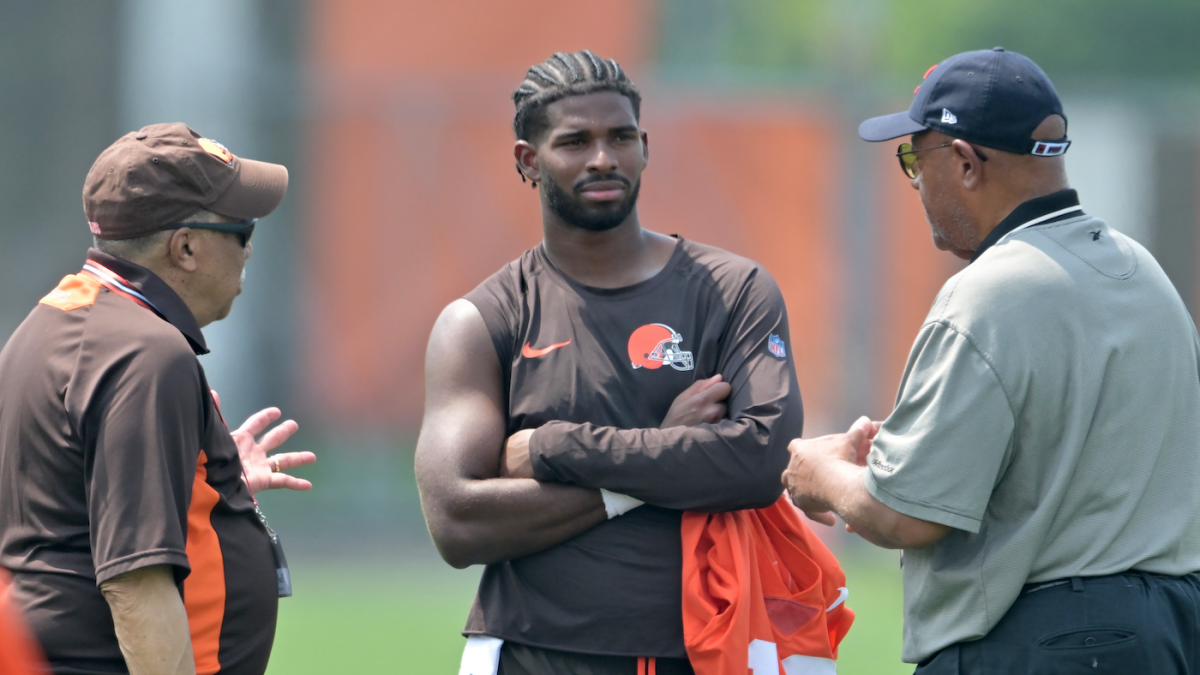Introduction
In the high-stakes world of professional football, off-field behavior can often overshadow on-field performance. This is precisely what happened when Shedeur Sanders, the rookie quarterback for the Cleveland Browns, found himself in the midst of a speeding controversy. The incidents, occurring within a short span in June, have sparked a debate about Sanders’ maturity, commitment, and potential impact on the Browns’ quarterback competition. This report delves into the details of the incidents, the reactions from within the Browns organization and the wider NFL community, and the potential consequences for Sanders’ career trajectory.
The Incidents: A Pattern of Excessive Speed
The controversy surrounding Shedeur Sanders began with two separate speeding incidents. The first occurred on June 6th in Medina, where Sanders was allegedly driving at 91 mph in a 65 mph zone, a 26 mph overage. The second incident, on June 18th in Strongsville, was even more alarming. Sanders was clocked driving 101 mph in a 60 mph zone, a staggering 41 mph over the limit. This second infraction was particularly concerning due to its early morning timing, raising questions about reckless driving.
Adding to the complexity, Sanders failed to appear for his initial arraignment regarding the first citation, resulting in additional fines and court costs totaling $269. This failure to appear further fueled criticism, suggesting a lack of responsibility and respect for the legal process. The incidents quickly gained national attention, with multiple news outlets, including ESPN, Fox 8 Cleveland, and AP News, covering the story.
Organizational Response: Downplaying the Impact
The Cleveland Browns organization has acknowledged the incidents but has largely downplayed their potential impact on Sanders’ position within the team. Former Browns coaches have suggested that the citations shouldn’t affect his roster spot or the ongoing competition for the starting quarterback role. This stance appears to be a deliberate attempt to minimize distractions and maintain focus on football.
The team seems to prioritize Sanders’ performance on the field, recognizing his potential and the investment they’ve made in him as a fifth-round draft pick. Reports indicate that Sanders has addressed the team and publicly apologized for his “wrong choices,” demonstrating a degree of accountability. However, the organization’s relatively muted response has also drawn criticism, with some arguing that a stronger message about responsible behavior was warranted.
The Quarterback Competition: A Distraction at a Critical Time
Sanders is currently in a four-way battle for the Browns’ starting quarterback position, competing against veteran Joe Flacco and fellow rookies Kenny Pickett and Dillon Gabriel. The timing of these incidents is particularly unfortunate, occurring during a crucial period of training and evaluation.
While the Browns maintain that the citations won’t determine the outcome of the competition, the negative publicity undoubtedly creates a distraction. Sanders needs to demonstrate not only his football skills but also his maturity and ability to handle the pressures of being an NFL player. Analysts suggest that the incidents won’t necessarily cost him the job, given his current position on the depth chart, but they do necessitate a focused effort to regain positive attention through on-field performance.
Public Scrutiny and Shifting Narratives
The response to Sanders’ speeding tickets has been varied and often polarized. Some, like Skip Bayless, have used the incidents to reinforce pre-existing skepticism about Sanders’ abilities and character, arguing that they undermine his post-draft progress. Others, however, have defended Sanders, pointing to his youth and the tendency to unfairly scrutinize young athletes.
A key narrative emerging is the contrast between Sanders’ initial draft projections (considered a potential first-round pick) and his eventual selection in the fifth round. Some attribute his draft slide to concerns about his character and maturity, and the speeding tickets appear to validate those concerns in the eyes of some observers. Conversely, arguments are made that the incidents are a minor lapse in judgment and shouldn’t overshadow his talent and potential. The potential danger of Sanders’ speed, highlighting the luck involved in avoiding an accident, has also been emphasized.
Demonstrating Growth and Rebuilding Trust
Sanders has acknowledged his mistakes and paid the associated fines, a step towards taking responsibility. However, rebuilding trust will require consistent positive behavior and demonstrable improvement both on and off the field. Reports from Browns minicamp and training sessions suggest Sanders has been making a positive impression with his work ethic and willingness to learn.
His ability to quickly adapt to the Browns’ new-look offense will be crucial. The focus now shifts to his performance in training camp and preseason games. Sanders needs to showcase not only his arm talent and football IQ but also his maturity, discipline, and commitment to the team.
Conclusion: A Defining Moment
The Shedeur Sanders situation is more than just a story about speeding tickets. It’s a defining moment for the young quarterback, a test of his character and his ability to navigate the challenges of professional football. While the incidents have undoubtedly created a distraction, they also present an opportunity for growth and learning.
Sanders’ response—his commitment to improvement, his accountability, and his performance on the field—will ultimately determine whether this controversy becomes a footnote in his career or a defining setback. The Browns organization has shown a willingness to give him a chance, but the onus is now on Sanders to prove that he is worthy of that opportunity, not just as a quarterback, but as a responsible and mature member of the team and the community. The road ahead is paved with potential, but it demands a consistent demonstration of good judgment and unwavering dedication.

